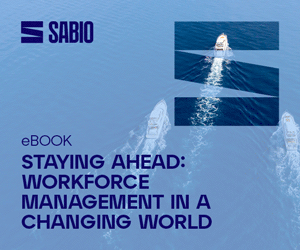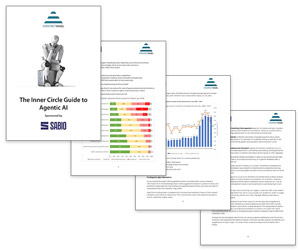If left unchecked, call centre agent burnout can lead to increased absences and high staff turnover.
Recognising the signs early is key to preventing long-term harm , and understanding how work affects mental health can help contact centre leaders provide better support.
To find out more, we asked Dr. Phoebe Asquith, Research Psychologist & Senior Business Consultant at Sabio Group, to define call centre agent burnout and outline the signs contact centre managers should look out for that suggest an agent is facing burnout.
Video: What Is Call Centre Agent Burnout and What Are the Signs?
Watch the video below to hear Phoebe explain what is meant by the term employee burnout and outline the signs an agent is facing burnout:
With thanks to Dr. Phoebe Asquith, Research Psychologist & Senior Business Consultant at Sabio Group, for contributing to this video.
This video was originally published in our article ‘Why It’s Time to Focus on Burn-In – Instead of Burn-Out‘
What Is Burnout?
Burnout is a state of chronic stress that affects both mental and physical health. It can lead to exhaustion, detachment, and a loss of motivation.
“Call centre agent burnout, or burnout in general, is caused by chronic stress. And it’s a gradual process and it’s something that’s a real risk factor for call centre agents at the moment.”
In call centres, where agents deal with high-pressure environments and emotionally demanding interactions, burnout is a serious risk.
What Causes Burnout?
Burnout develops over time due to ongoing stress without enough recovery. In call centres, this often comes from repetitive emotional labour, back-to-back calls, and increasingly complex customer issues, as Phoebe explains:
“Some of the risk factors are excessive emotional labour, or repetitive emotional labour, a lack of breaks between calls, or the increased complexity of calls that we’re seeing at the moment that agents have to deal with.
And some stress like that, that type of stress can be fine, can be good, and can help people to engage with their roles.
But if you’re experiencing that type of stress in a repeated manner, and without any kind of let-up, it can be really damaging.”
While some stress can be motivating, constant exposure without breaks can become harmful.
The Signs of Call Centre Agent Burnout
If left unchecked, burnout can lead to increased absences and high staff turnover. As a result recognising the signs early is key to preventing long-term harm.
“The signs that we see when you’re moving toward burnout, so at these earliest stages where you’re starting to feel stressed, or when you start to feel emotionally drained, you might start to feel underappreciated, you might find it difficult to sleep, or you feel kind of lonely at work, or detached from work.
And unless these are addressed early and recognized early, this can spiral towards burnout. And what burnout looks like, so like I said, it’s that chronic stress.”
There are three main symptoms of burnout:
1. Exhaustion
This includes both mental and physical fatigue, so agents may feel drained, struggle with low energy, or even experience frequent illness.
“And the three main symptoms of burnout are mental and physical exhaustion. So you might start to feel ill, you just have a really low level of energy.”
2. Hopelessness
A feeling of being overwhelmed, unable to meet work demands, and unsure of how to improve the situation.
“Then the second one is feeling hopeless. So you start to feel like, I can’t do my job, and I don’t know what to do about it, and I don’t think my organization knows how to support me either. I don’t know how to get out of this cycle. I just feel really tired and hopeless. I don’t know what to do about it.”
This can make agents feel unsupported and stuck in a cycle of stress.
3. Detachment
To cope with stress, agents may start to withdraw from their work and colleagues. They may feel disconnected from their role and lose the sense of engagement they once had, as Phoebe continues:
“And the third symptom of burnout is when you start to detach from your role. So because you’re feeling tired, because you’re feeling hopeless, I don’t know what to do.
You start to kind of use a protective measure to step away from those triggers, from that job, because that’s the only kind of way you can protect yourself from these symptoms.
So it means that you’re going to detach from the role itself, as well as all of those social connections or social support that you might see at work.
And this can increase absence and can lead to lots of people actually leaving their jobs because they just find it too difficult to cope.
So if you can recognize the signs early, there are things we can do about it, and it’s mainly just understanding human cognition and the impact that work can have on the way that we think, and the way that we’re responding to the demands that we see day to day.“
If you are looking for more great insights from the experts, check out these next:
- Examples of Tone of Voice in Action
- Understanding Conversation Analytics
- Tips To Get the Best Out of Your Outbound Dialler
- Why Customer Experience (CX) Matters
Author: Robyn Coppell
Reviewed by: Hannah Swankie
Published On: 31st Jan 2023 - Last modified: 25th Sep 2025
Read more about - Video, Dr. Phoebe Asquith, Employee Engagement, Health Wellbeing and Stress, Sabio, Videos


















